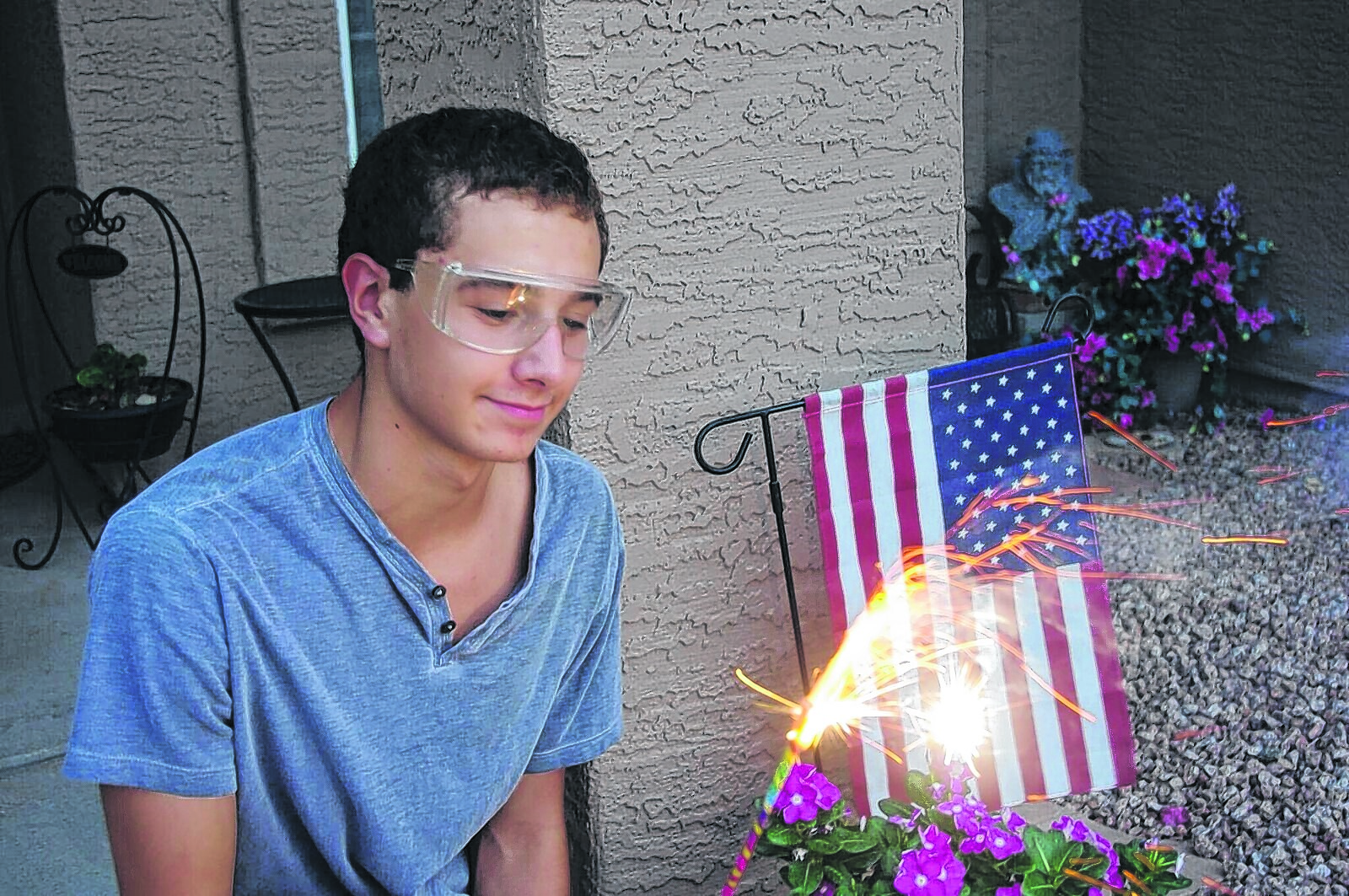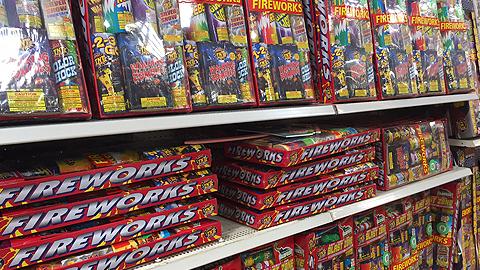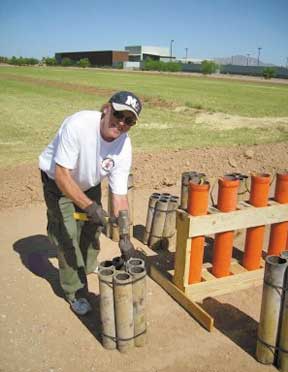
As a 10-year-old growing up in the Midwest, Jon Konti remembers the anticipation that started weeks before the Fourth of July: those big industrial-strength skyrockets set off at the hometown stadium, the secretly purchased Chinese firecrackers that some of his buddies mysteriously acquired, even the hand-held sparklers that offered an always exciting, though presumably harmless, thrill.
That was then.
In the ensuing 25 years, Dr. Konti no longer looks forward to the No. 1 day of the year for fireworks use and, as a staggering byproduct, the horrific injuries that increasingly have become associated with them.

Now, as a practicing, board-certified Tempe ophthalmologist, Konti and his medical-practice partners know they’ll likely have to face anguished parents and sometimes agonizingly burned children in Valley hospitals when emergency-room doctors send out an urgent call for an eye specialist.
“You can’t believe what we sometimes find when we arrive,” said Konti.
He says that even something as commonplace as a sparkler set off in the family’s front yard can inflict life-altering injuries.
It takes only a quick search through Google’s massive collection of eye-injury images to acknowledge Konti’s grasp of the severity that comes with our nation’s infatuation with fireworks—a search, by the way, that we don’t recommend to any with an aversion to viewing close-up the damage that can be incurred by something so deceivingly innocuous as store-bought Bangers, Bouquets or Bombettes.
Since he is on-call for July 4th duty that takes him to East Valley hospitals, Konti says he has memories of cases where he saved the eyesight of a patient because of his specialized training, as well as another less-fortunate case where he had to remove a patient’s eye when it was beyond repair.
He’ll never forget a letter he received from a mother thanking him for his care that saved her son’s eyesight after a firework explosion in his face when he was 17 while awaiting acceptance into the armed forces.
Konti took great elation in writing the final medical report several months after surgical repair of the young man’s eye wounds, showing only mild residual sequelae on his eyesight, and then was overjoyed to hear of his passing the armed forces physicals and ultimately achieving his long-term goal of entering the service.
While life-threatening injuries can result from the larger, commercially produced fireworks, Konti says that the majority of cases he’s called on to treat involve those seemingly innocent sparklers.

He doesn’t want to put a damper on families’ enjoyment of a Fourth of July mainstay, but Konti advises parents to keep kids well away from locally bought fireworks displays.
“Some of those can be very dangerous,” he said.
To parents who don’t want their kids to be deprived of one of the July 4th holiday’s biggest attractions, Konti says there’s one major safeguard they can keep handy—in addition to parental good sense: A pair of safety goggles, the kind that are widely available in local stores.
“Even those inexpensive ones that can be found in almost any hardware store are better than nothing at all,” Konti said.
Best bet, however, are the kind that incorporate polycarbonate resin into their lenses, becausde those typically offer a greater degree of protection.
As to how his position on fireworks-related risks compares with those of other ophthalmologists around the country, Konti travels in impressive company. The American Academy of Ophthalmology and the U.S. Consumer Product Safety Commission present a unified front in the ongoing battle to reduce fireworks-related eye injuries.

A 2018 survey conducted by the academy uncovered that such injuries doubled from just the year prior. There were 1,300 eye injuries in 2017 related to July 4th fireworks. An average of 280 people a day will go to the emergency room with fireworks-related injuries during the two weeks before and after the Fourth of July.
As part of its efforts to minimize long-term damage if an eye injury occurs, Konti and the academy offer these recommendations:
- Seek medical attention immediately. Do not rub your eyes. Do not rinse your eyes. Do not apply pressure. Do not remove any objects that are stuck in the eye. Do not apply ointments or take any blood-thinning medications, such as aspirin or ibuprofen.
- Let professionals produce your family’s July 4th fireworks entertainment.
- If you must stage your own home show, maintain a safe distance, use good sense and don’t forget the eye-protection that comes with using safety goggles.
A few simple precautions can help prevent a lifetime of regret, Konti says.
Dr. Jon Konti is board-certified ophthalmologist with Ophthalmic Surgeons and Physicians, a long-established and highly regarded medical practice at 3200 S. Country Club Way, Tempe. Konti specializes in cornea, cataract, and refractive (LASIK) surgery. Reach him at 480-839-0206.

